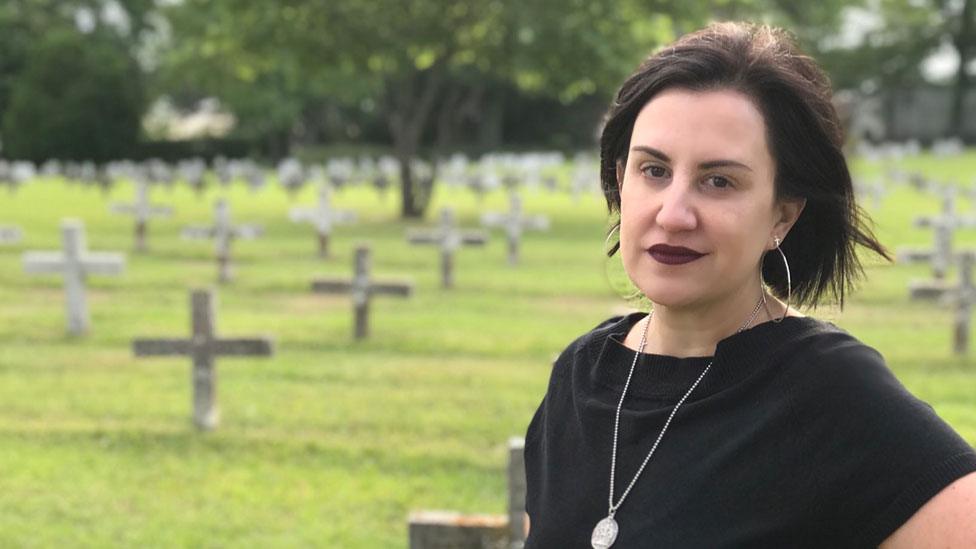Texas bans chaplains from execution chambers
- Published
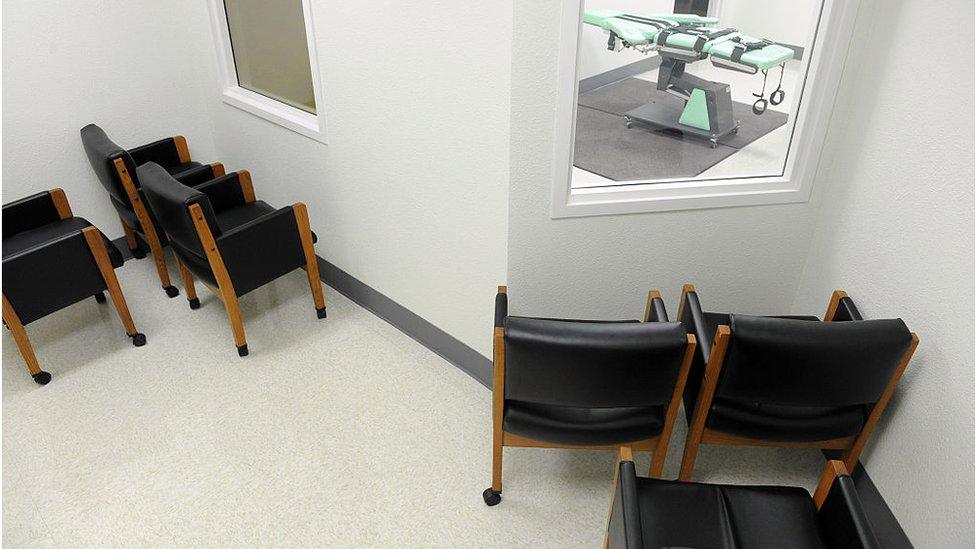
Texas says chaplains can now only be present in the witness chamber
The Texas prison system has banned religious chaplains from execution chambers after a Supreme Court ruling.
Faith and spiritual advisers may still attend as witnesses, prison officials said, but they will be required to sit in the witness room.
America's highest court last week said the state must grant a condemned prisoner's request for a Buddhist monk.
Texas officials said it refused Patrick Murphy as the state only employs Christian and Muslim clerics.
Murphy, 57, who became Buddhist while in prison, was one of the so-called "Texas Seven" gang that escaped a prison in 2000 and murdered a police officer.
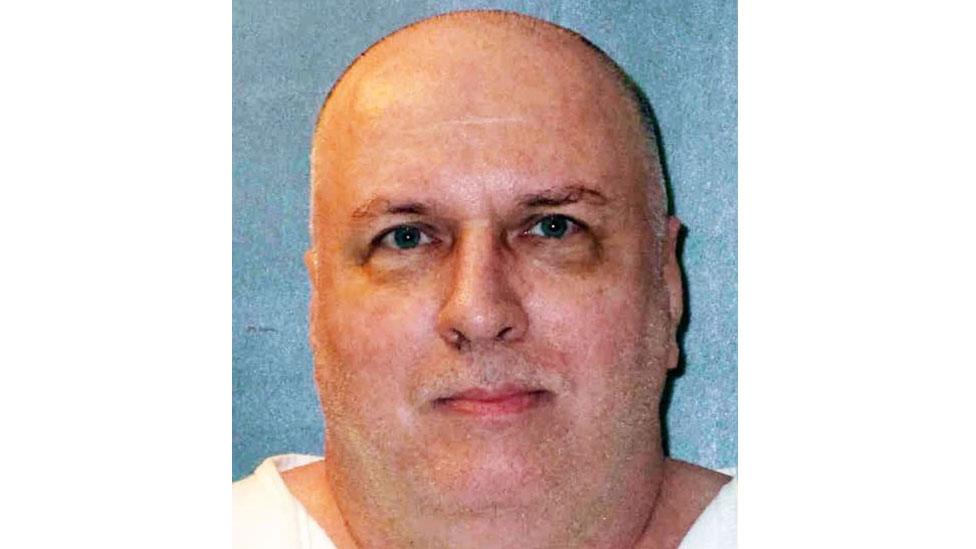
Conservative Justice Brett Kavanaugh concurred last week with the US Supreme Court's liberal judges in that case.
He said in his judgment that religious discrimination violated the constitution.
Justice Kavanaugh wrote that the state had two options: "(1) allow all inmates to have a religious adviser of their religion in the execution room; or (2) allow inmates to have a religious adviser, including any state-employed chaplain, only in the viewing room, not the execution room".
In response, the Texas Department of Criminal Justice (TDCJ) said it had changed its policy to allow only prison security personnel inside the execution chamber.
"TDCJ chaplains will continue to be available to an offender until they are transferred to the execution chamber," said a spokesman on Wednesday.
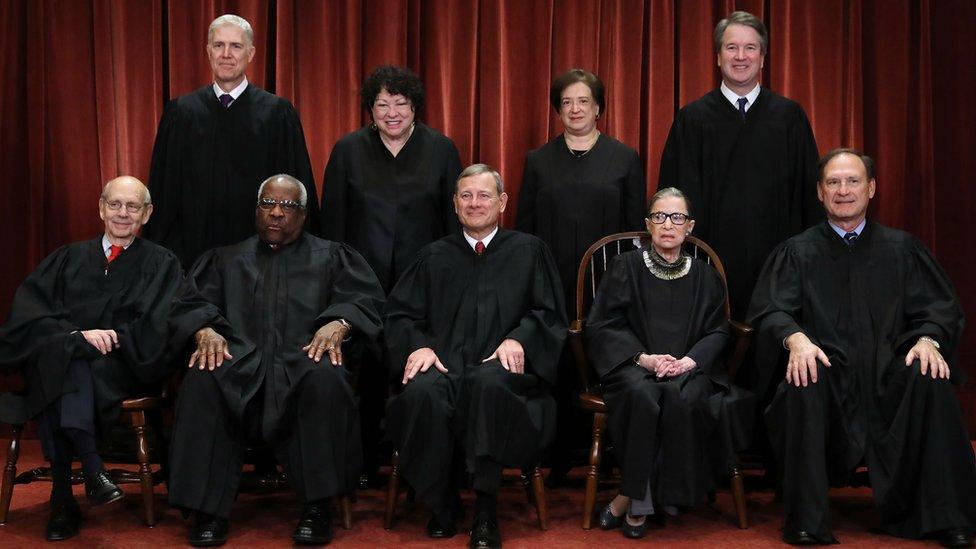
US Supreme Court: (Front L-R) Stephen Breyer, Clarence Thomas, Chief Justice John Roberts, Ruth Bader Ginsburg, Samuel Alito, Jr; (Back L-R) Neil Gorsuch, Sonia Sotomayor, Elena Kagan and Brett Kavanaugh
"The offender's approved spiritual adviser will continue to have the ability to visit the offender and be present in the witness room.
"This change is effective immediately."
The new procedures still leave Murphy's fate uncertain.
Last week's Supreme Court ruling said the inmate could not be executed "unless the State permits Murphy's Buddhist spiritual adviser or another Buddhist reverend of the state's choosing to accompany Murphy in the execution chamber during the execution".
The policy change brings Texas in line with most other capital punishment states, according to the Death Penalty Information Center.
Its executive director, Robert Dunham, said clergy are generally not allowed into execution chambers elsewhere in the US.
But religious liberty law firm Becket said Texas prisons' new rules would not stand up to a legal challenge.
The organisation's vice-president, Luke Goodrich, tweeted: "Religious freedom *includes* the vital requirement of equal treatment across all religious faiths.
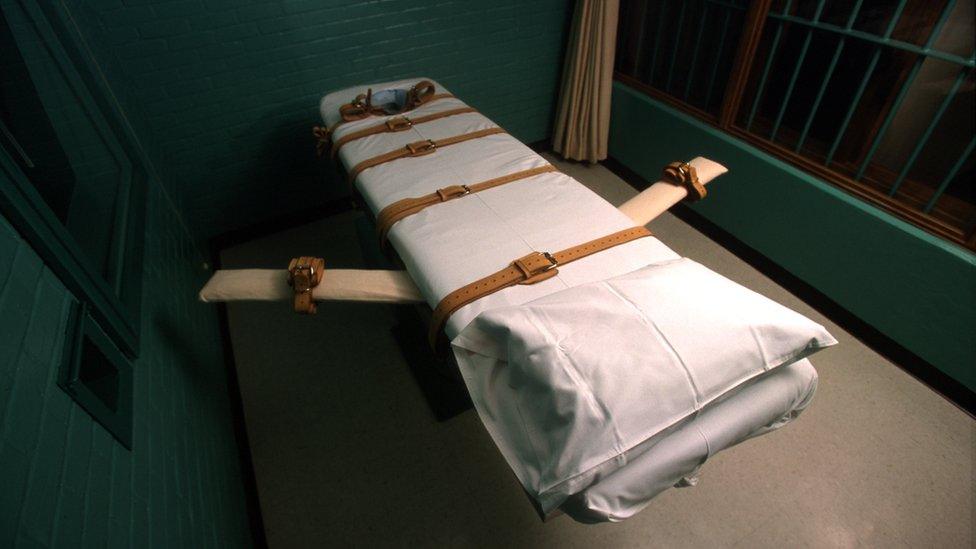
The last execution in California was carried out in 2006
"But it also means the government can't prohibit religious practices without a very powerful reason for doing so - which Texas doesn't have here."
In a February case, the Supreme Court denied an Alabama Muslim death row inmate's bid to stop his execution after the prison denied his request to have an imam present.
America's highest court ruled that the condemned man, 42-year-old Dominique Ray, should have made his complaint known earlier than 15 days before he was due to die.
Ray was executed.
In another controversial majority ruling from the justices just this week, they said the US constitution "does not guarantee a prisoner a painless death".
Russell Bucklew, a convicted murderer in Missouri, had argued that he could face "excruciating pain" during a lethal injection because of a rare medical condition.
But the court ruled 5-4 that he was not entitled to his preferred method of execution: nitrogen gas. Bucklew, 50, can now be executed.
- Published1 April 2019
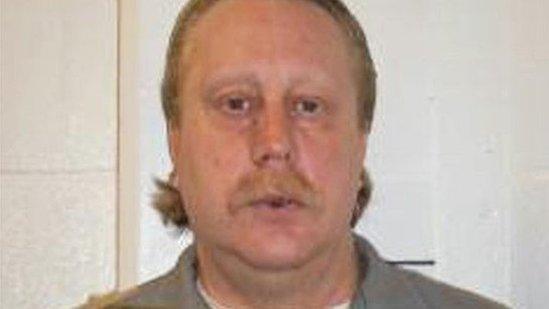
- Published25 January 2024
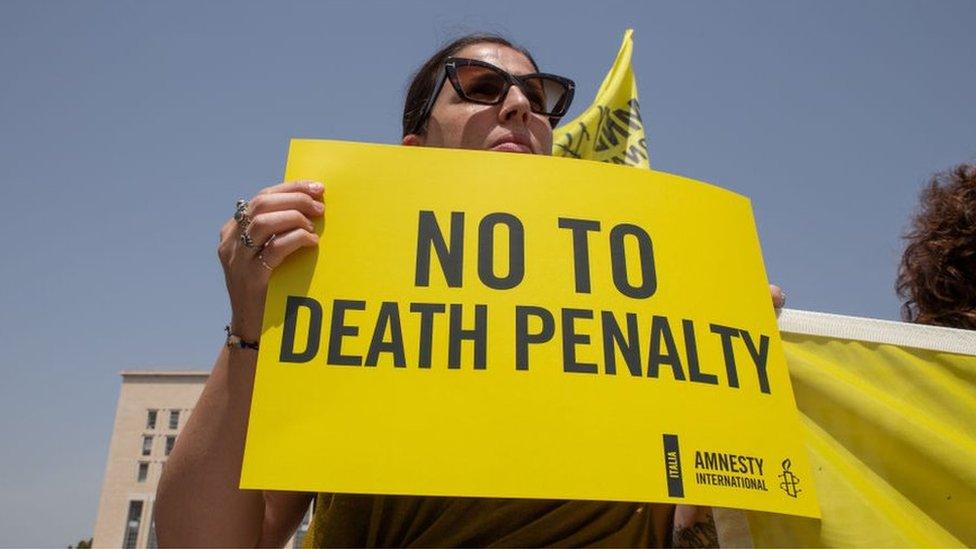
- Published7 May 2018
